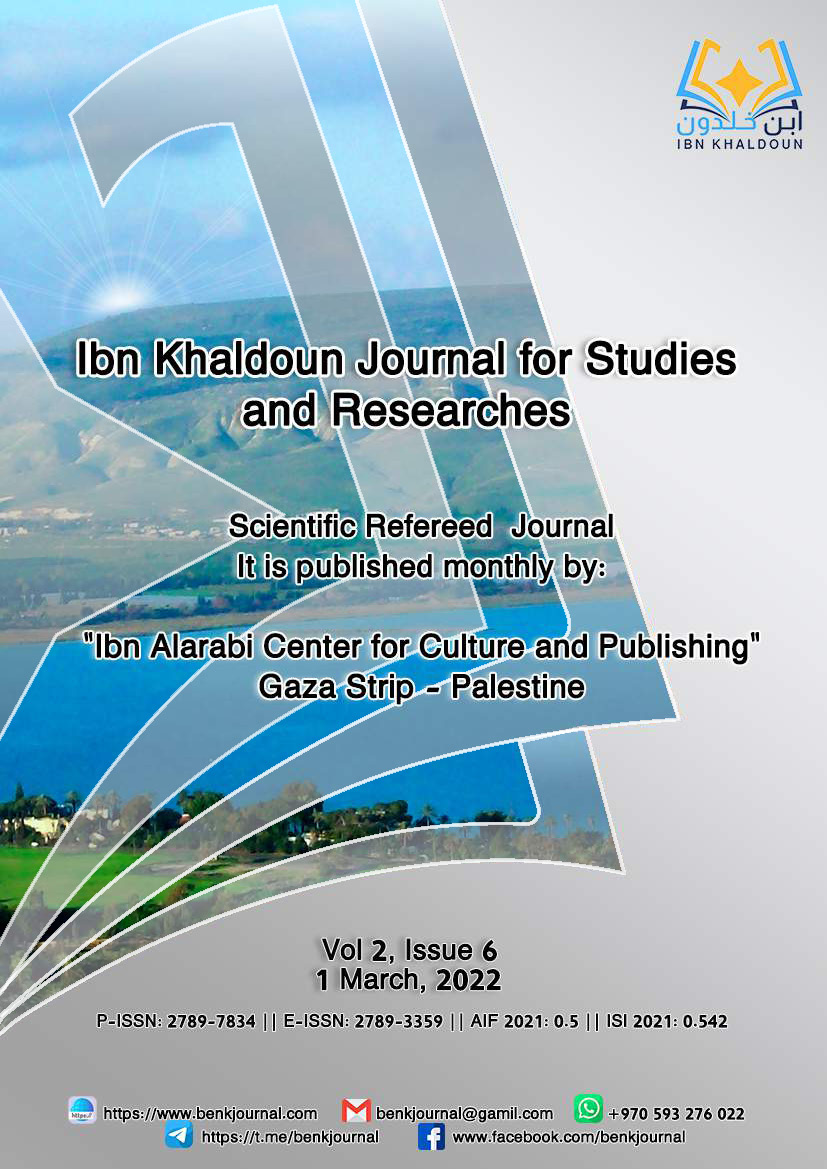The crime of trafficking in human organs within the framework of the Saudi criminal law and comparative jurisprudence
Main Article Content
Abstract
The crime of trafficking in human organs is among the most serious crimes that affect the sanctity of the human body, so we must intervene in order to provide the necessary protection for this sanctity in accordance with international conventions and the rules of Islamic Sharia in combating this crime and prosecuting its perpetrators. The penalties stipulated in Saudi law are tougher in cases where the crime is committed by an organized criminal group or , if it is committed against a woman or a person with special needs, or if it is committed against a child, even if the offender is not aware that the victim is a child, or if the perpetrator used or threatened to use a weapon. Also if he was a spouse of the victim, one of his ascendants, descendants, or guardians, or if he had authority over him. Moreover, if he is a law enforcement officer or if he is more than one person. If the crime is transnational. If it results in serious harm to the victim, or a permanent disability. We concluded with the following recommendations like Spreading awareness among members of society and alerting them to the dangers that are going on around them, through preachers and thinkers.
Metrics
Article Details

This work is licensed under a Creative Commons Attribution-NonCommercial 4.0 International License.
References
صحيح البخاري.
صحيح مسلم.
لسان العرب.
- مجلة الفقه الإسلامي، عدد 4، ج1، جدة، 1988م، ص805.
- د. فايزة الباشا، "الجريمة المنظمة في ظل الاتفاقيات الدولية والقوانين الوطنية"، رسالة دكتوراه، كلية الحقوق، جامعة القاهرة، 2001، ص18.
- د. آمال عثمان، "شرح قانون العقوبات"، القسم الخاص، دار النهضة العربية، 2001م، ص 234.
- د. فتوح عبد الله الشاذلي، "جرائم التعزير المنظمة في المملكة العربية السعودية"، دار المطبوعات الجامعية، (1433هـ/2013م)، ص172.
- د. محمد صبحي نجم، "قانون العقوبات القسم العام النظرية العامة للجريمة"، دار الثقافة للنشر والتوزيع، (1435هـ/2014م)، ص 332.
- د. محمود محمود مصطفى، "شرح قانون العقوبات"، القسم العام، مطبعة القاهرة، 1983م، ص 416.
- د. حامد سيد محمد حامد، "الاتجار في البشر كجريمة منظمة عابرة للحدود"، القومي للإصدارات القانونية، 2010م، ص42.
- "مكافحة الاتجار بالبشر والأعضاء البشرية"، جامعة نايف العربية للعلوم الأمنية، مركز الدراسات والبحوث، الرياض، 1426هـ 2005م.
- القرار رقم (99)، صادر بتاريخ 6/11/ 1402هـ في الدورة 20 المنعقدة في الطائف.
- حاشية ابن عابدين، ج5، ص58.
- المصاروة، "نقل الأعضاء البشرية بين الحظر والإباحة"، ص 63، مجلة مجمع الفقه الإسلامي، عدد4، ج1، 1988.
- هند حميد خليفة، "المواجهة الدولية لجريمة الاتجار في الأعضاء البشرية"، مجلة البحوث القانونية والاقتصادية، المنوفية، 2021.
- صحيح سنن أبي داؤود وصححه الألباني، مكتبة التربيع العربي، ط1، 1409-1989م، ج2، ص (618).
- مغني المحتاج، 1/367، الفتاوى الهندية للشيخ نظام الدين 5/360.
- "الجهود الدولية في مكافحة الاتجار بالبشر"، جامعة نايف العربية للعلوم الأمنية، الرياض،2010.
- انظر: قرار الجمعية العامة لمنظمة الأمم المتحدة 55/25.





